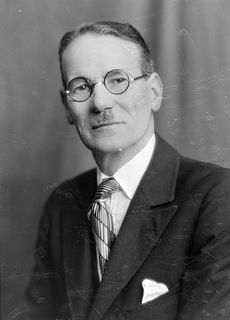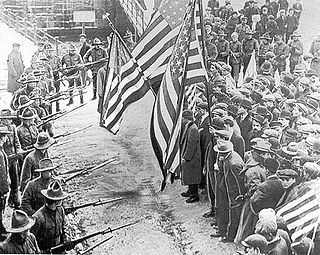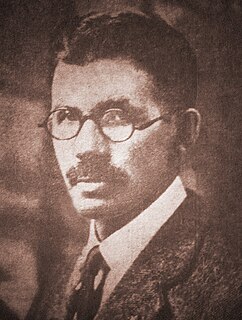
Robert Semple was a union leader and later Minister of Public Works for the first Labour Government of New Zealand.

Ferdinand August Bebel was a German socialist politician, writer, and orator. He is best remembered as one of the founders of the Social Democratic Workers' Party of Germany (SDAP) in 1869, which in 1875 merged with the General German Workers' Association into the Socialist Workers' Party of Germany (SAPD). During the repression under the terms of the Anti-Socialist Laws, Bebel became the leading figure of the social democratic movement in Germany and from 1892 until his death served as chairman of the Social Democratic Party of Germany.

The Lawrence textile strike was a strike of immigrant workers in Lawrence, Massachusetts, in 1912 led by the Industrial Workers of the World (IWW). Prompted by a two-hour pay cut corresponding to a new law shortening the workweek for women, the strike spread rapidly through the town, growing to more than twenty thousand workers and involving nearly every mill in Lawrence. Starting January 1, 1912, the Massachusetts government started to enforce a law that allowed women to work a maximum of 54 hours, rather than 56 hours. Ten days later, they found out that pay had been reduced along with the cut in hours.

The 1913 Paterson silk strike was a work stoppage involving silk mill workers in Paterson, New Jersey. The strike involved demands for establishment of an eight-hour day and improved working conditions. The strike began in February, 1913, and ended five months later, on July 28th. During the course of the strike, approximately 1,850 strikers were arrested, including Industrial Workers of the World (IWW) leaders William Dudley Haywood and Elizabeth Gurley Flynn.
Robert H. "Bob" Zieger was a renowned labor historian whose research focused on the labor history of the United States.

The Pietro and Maria Botto House, also known as Pietro Botto House, at 83 Norwood Street, Haledon in Passaic County, New Jersey, United States, is where leaders of the Industrial Workers of the World (IWW) union spoke to the 15,000 striking workers of the Paterson Silk Strike of 1913.
Clinton L. Bardo was an American industrialist whose career included stints as general manager of the New York, New Haven and Hartford Railroad and president of New York Shipbuilding. As president of the National Association of Manufacturers (NAM) from 1934 to 1935, he became an outspoken opponent of U.S. President Franklin D. Roosevelt's New Deal.
Francis Joseph Haas was an American Roman Catholic bishop and advocate for social justice. He was the sixth bishop of the Roman Catholic Diocese of Grand Rapids from 1943 until his death in 1953.

Adoph F. Germer (1881–1966) was an American socialist political functionary and union organizer. He is best remembered as National Executive Secretary of the Socialist Party of America from 1916 to 1919. It was during this period that the Left Wing Section of the Socialist Party emerged as an organized faction. Germer was instrumental as one of the leaders of the SPA's "Regular" faction in orchestrating a series of suspensions, expulsions, and "reorganizations" of various Left Wing states, branches, and locals and thereby controlling the pivotal 1919 Emergency National Convention of the SPA, and thus forcing the Left Wing to establish new organizations of their own, the Communist Labor Party of America and the Communist Party of America.

John Ryle was known as the "father of the United States silk industry" and was the Mayor of Paterson, New Jersey from 1869 to 1870.

George Wallace William Hanger was a mediator for the Federal Board of Mediation and Conciliation and held other positions for government agencies involved in the resolution of labor disputes.
The 1835 Paterson textile strike took place in Paterson, New Jersey, involved more than 2,000 workers from 20 textile mills across the city. The strikers, many of whom were children and of Irish descent, were seeking a reduction in daily working hours from thirteen and a half hours to eleven hours. Support from other workers in Paterson and nearby cities allowed the strikers to sustain their efforts for two weeks. Employers refused to negotiate with the workers, and were able to break the strike by unilaterally declaring a reduction in work hours to twelve hours daily during the week and nine hours on Saturdays. Many leaders of the strike and their family were blacklisted by employers in Paterson after it ended.

Silk mill is a factory that makes silk garments using a process called silk throwing. Traditionally, silk mills were concentrated in Japan, England, New Jersey, Pennsylvania and Switzerland. In New Jersey, disputes between silk mill workers and owners lead to the 1913 Paterson silk strike and the 1926 Passaic Textile Strike.

Arthur Patrick L. "Pat" Quinlan (1883–1948) was an Irish trade union organizer, journalist, and socialist political activist. Quinlan is best remembered for the part he played as an organizer for the Industrial Workers of the World in the 1913 Paterson silk strike — an event which led to his imprisonment for two years in the New Jersey State Penitentiary.
Thomas Joseph Cuite was an American politician from New York.
The Lawrence Textile Strikes were part of a series industrial strikes in the garment and textile industries of the American East from 1909 to 1913. The participants of these strikes were largely immigrant factory workers from southern and eastern Europe. Class division, race, gender, and manufacturing expertise all caused internal dissension among the striking parties and this led many reformist intellectuals in the Northeast to question their effectiveness. A major turning point for these labor movements occurred in 1912 during the Lawrence Textile Strike in Lawrence, Massachusetts, where laborers were able to successfully pressure mill owners to raise wages, later galvanizing support from left-leaning intellectual groups. In 1913 the Paterson Silk Strike also referred to as the Lawrence Textile Strike of 1913 took place in Paterson, New Jersey. This strike was a work stoppage involving silk mill worker.













